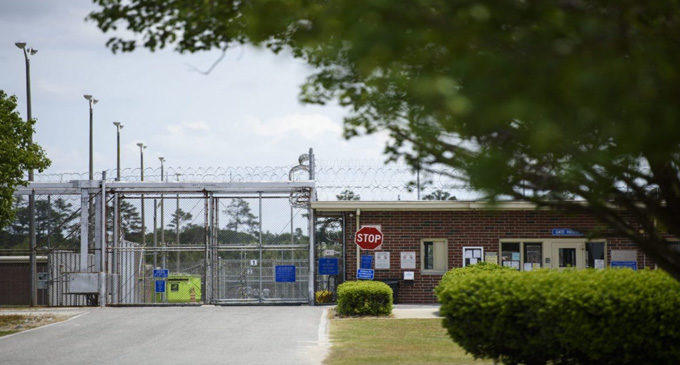Judge: Test all N.C. prison staff for virus every 14 days

By Jordan Wilkie, Carolina Public Press
North Carolina’s Department of Public Safety will begin to test every staff person who comes into contact with inmates in state prisons, starting this week.
The prisons could have done this on their own months ago, following guidance from another state agency. But they did not.
Instead, the move to test prison staff was ordered Thursday by Vinston Rozier Jr., a Wake County Superior Court judge who has been overseeing a lawsuit challenging the constitutionality of conditions in state prisons since April.
Routine testing of prison staff is important, plaintiffs in the case argue, because staff members are the primary connection between prisons and the surrounding communities.
The N.C. Department of Health and Human Services came to the same conclusion, according to a July 31 email that the plaintiffs uncovered in discovery and attached to a public court filing last week.
“Given that inmates are tested on arrival and generally spend at least 14 days in a processing center, the main way COVID-19 can be introduced into a facility is through staff,” Megan Sredl, a DHHS epidemiologist, wrote to DPS staff.
“It will be faster and more effective to regularly test all staff to see if they have introduced the virus, rather than identifying the virus in a sample of inmates after it has already been circulating in the facility.”
Since the first cases were identified in state prisons in March, disease spread has followed a similar pattern. A single case in a prison is identified. Shortly thereafter, expanded testing reveals a large outbreak. Prison staff and inmates fall ill by the dozens, and in several major outbreaks at Neuse, Piedmont and Raleigh’s women’s prison, among several others, have quickly ballooned into hundreds of cases.
In September and again on Nov. 25, DPS announced major prison transfers and temporary facility closures in part because of high staff vacancy rates, where COVID-19 infections exacerbated long-standing staff shortages.
How many have died?
Since April, public health experts and civil rights groups have warned Gov. Roy Cooper and DPS that COVID-19 would move rapidly through the prison population, threatening the health of prison staff members and the communities in which they reside when they are off work.
Experts have also warned from early in the pandemic that without expanded testing, more people in state custody would become ill and die from COVID-19.
Commissioner of Prisons Todd Ishee told the Senate Committee on Prison Safety on Nov. 30 that, as far as the prison system knows, four prison staff members have died from COVID-19 infection. There were 319 staff members out of work with the illness, and 1,560 had gotten sick since March.
An investigation in May by the NC Watchdog Reporting Network into the death of Barbara Anne Stewart, a nurse at Caswell Correctional Center and the first known prison staff death, revealed that a lack of testing at the prison masked a significant COVID-19 outbreak.
Indeed, when the state began mass testing of every person in state custody, DPS discovered extensive outbreaks in its prisons that were otherwise undetected.
While DPS has significantly ramped up testing for its staff and for people held in prisons, often on the heels of an order from Rozier, plaintiffs have routinely criticized the testing strategies as insufficient.
In May, DPS announced its first plan to test prison staff for the new coronavirus, which causes COVID-19. The majority of staff testing has been voluntary.
At the Nov. 30 hearing in front of the Senate committee, Ishee said prisons had begun a new testing regime, whereby all staff members were being tested every 14 days, but only when there was an active outbreak at the prison. There were 26 prisons with active outbreaks.
For all other prison staff, voluntary testing was still available.
But Judge Rozier determined that was not enough. Staff at every prison must be required to be tested every 14 days, he wrote in his order, released Thursday afternoon.
The state will have to report those tests and results weekly to the courts. For the first time, the public will have consistent reports on how many staff at which prisons are testing positive. Epidemiologists and other public health experts have been seeking this information for months, as have journalists.
Previously, DPS reported positive staff tests, but only by region and for staff members who used the voluntary testing system. If staff members got tested by their own doctors, at community events or elsewhere, DPS said it could not reliably report those tests and results.
That is the same reasoning Ishee gave to state senators at the Nov. 30 hearing for not being able to say for sure that more prison staff members have not died from the disease. Staff members could have become ill and subsequently died without ever alerting the prison system, Ishee said.
Now, it should no longer be possible for the state’s prison staff to get sick and die from COVID-19 without the state or the courts knowing about it.










